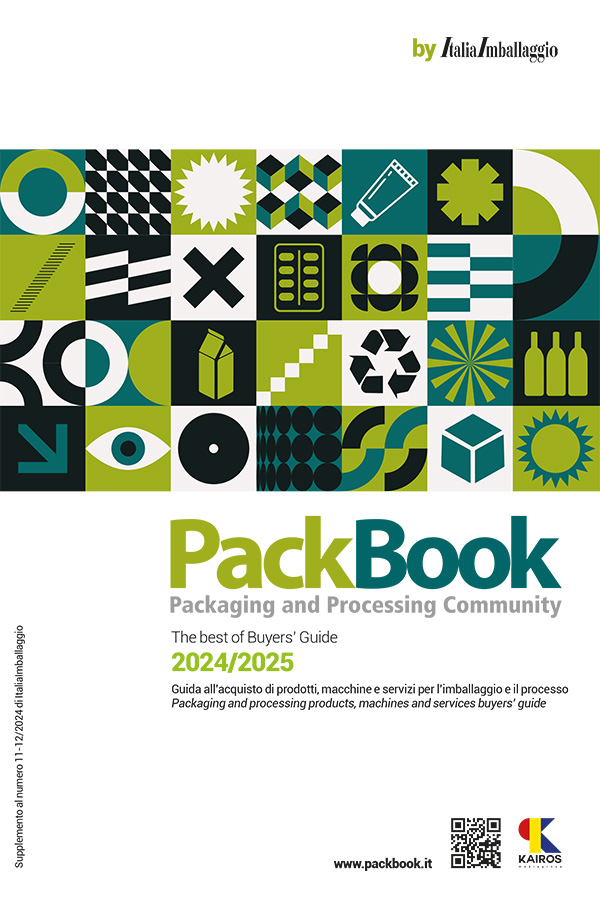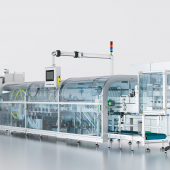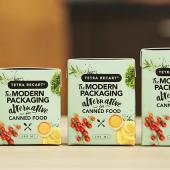Flexible is already the future

Editorial by Stefano Lavorini.
The fundamentals remain good even in this turbulent period-with positive sales trends, a steadily rising employment level, and a good export trend - and so flexible packaging manufacturers continue with determination to work to define and build a profile and visibility of the industry appropriate to the importance and of this packaging.
The proof came from the recent Giflex congress, entitled "Flexible Packaging in Balance in the Age of Discontinuity”, during which the political and economic situation was taken stock of, sustainability was debated, but above all what has been and is being done to better tell a story of great value and which is now encapsulated in a new evocative image.
Good design is good business: this statement by Thomas J. Watson Jr, chief executive of IBM since the 1950s, resonated again and again, declined in various forms and meanings during the proceedings of the last congress of Giflex - Gruppo Imballaggio Flessibile (Flexible Packaging Group), held in Rome on May 18 and 19, 2022.
Alberto Palaveri, president of the Group, interpreted it when he pointed out that flexible packaging manufacturers are "designers" who have always tried to interpret the needs of their customers, end users, packaging machine manufacturers, Conai System consortia, and recyclers, choosing from time to time the most useful, most beautiful, most effective and least expensive materials.
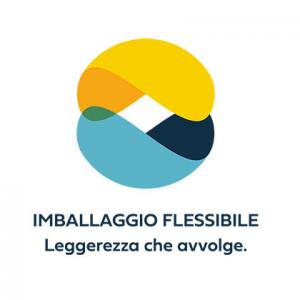
Valerio Cometti, of V12 Design, also quoted it verbatim in a very well articulated speech in which he talked about creativity and innovation as generators of profitability for the company, reminding the concern to give, starting from an empathetic attitude towards its interlocutors, the right attention to the aesthetic component, to the ways in which the company manages to tell its story, as well as to the ability to solve the problems of the various stakeholders.
The juxtaposition allows me to say - something which is completely arbitrary - that the path taken by Giflex moves in the direction of rethinking and giving new impetus to the association's role in the general interest of the industry, with many points of contact with what the various speakers testified to.
An unusual consonance between organizers and speakers, between "container and content," which also found a correspondence in the overall direction of the event, thanks to the many professional skills fielded by Giflex, well above the standards to which we are accustomed.
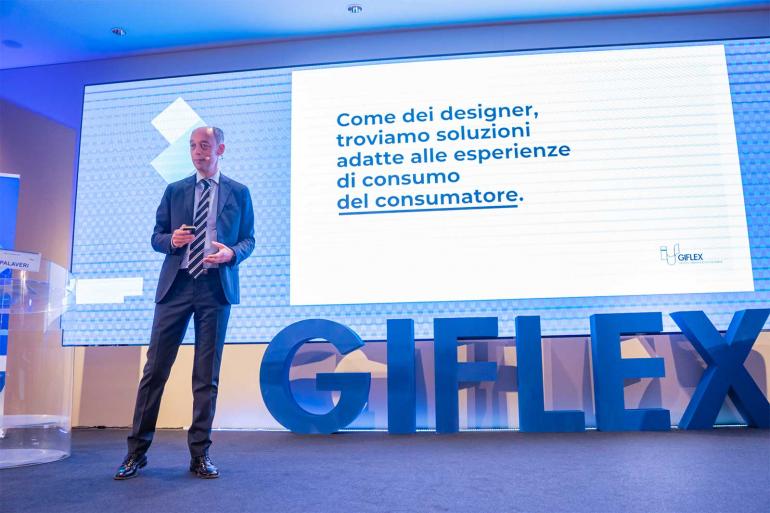
Chronicle of the first day
True to the title of the meeting, "Flexible Packaging in Balance in the Age of Discontinuity," there were many complex topics at the center of the program: from the economic situation to international happenings, from rising prices and scarcity of raw material supplies to the impact of energy costs and the challenges for recyclability.
Moreover, the entire system scenario was analyzed by focusing on the role exerted by flexible packaging at the production and consumption level, between risks, new opportunities and responsibilities.
Welcoming the speakers, Alberto Palaveri pointed out that Giflex has made Robert Baden-Powell's maxim its own - «We have not inherited the world from our fathers, but we have borrowed it from our children, and to them we must return it better than we found it.» And it was with this fundamental in mind that he presented his thoughts on the invasion of Ukraine, on freedom, on the overlaps between the international situation and day-to-day operations in companies in the field, and on what can be done to defend the basic values in our democracy.
But it also dealt with the qualifying points for Giflex: to dialogue with politics to be drivers of change and not suffer or be subject to the same, to measure and systematize sustainability, to adopt new interassociative models, to promote the identity value of flexible packaging, technological, safe and with reduced impact and material consumption.
The first session devoted to macroeconomic trends was opened by Carlo Altomonte, Bocconi University, with a detailed overview of the European situation, which was brilliantly counterpointed by Federico Visconti, Rector of LIUC University, for a focus on business organization in a crisis context.
Giada Messetti, sinologist and author of the book "China is Already Here," treated with punctual levity an in-depth look at China's role in international geopolitics, and the possible repercussions on the future of companies as well.A panel discussion, introduced by Stefano Consonni, FB&Associati, then dealt with the topic "Packaging Waste and Packaging Waste Directive."
Side notes
The two days of the Congress were enlivened by 25 speakers and 250 participants, as well as 3 well-known companies in the industry as "well-deserving" sponsors: Bobst, Dec Impianti and Henkel.
The location, the Hotel Villa Pamphili, was appropriate for the level of the event, and the gala evening organized at Villa Miani was - quite simply - an unmissable pleasure for the view of Rome. Even for a Roman like me.
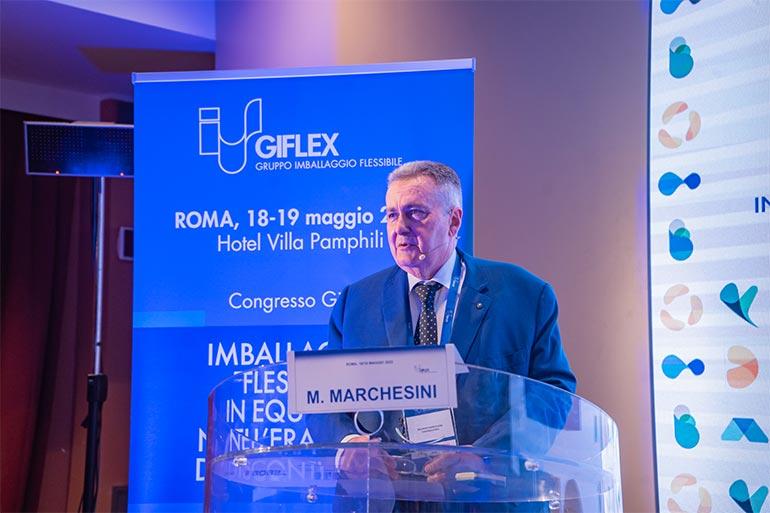
The chronicle of the second day
It was again Alberto Palaveri who started the proceedings, recalling how much the word "identity" plays a key role for Giflex:
«With a new logo and the claim "Lightness that wraps," we tried to shape flexible packaging, to be recognizable and be able to better communicate our identity value. A visual and conceptual synthesis of the history of the industry to go to define not only a shared image, but also a common strategy and synergies at the supply chain level, to respond to market needs. First and foremost is the quest for sustainability».
And as proof of how important it is to continue to inform about why we do what we do, Giflex commissioned research aimed at «defining the identity and value profile of flexible packaging based on the elements of innovation and the positive impacts these have on people's lives and the environment», which was presented by Clara Giardina, Packaging Innovation Observatory, University of Bologna.
The focus on sustainability and circular economy was deepened by Andrea Formigoni (DEC Impianti), with a speech dedicated to decarbonization and during a panel discussion that included Dana Mosora (Communication Director of Ceflex), Claudia Brunori (Head of Efficient Resource Use and Closing Cycles Division, ENEA) and Marco Bergaglio, President of Unionplast. Michele Guala, vice president of FPE (Flexible Packaging Europe), will moderate this panel.
The in-depth discussion on Design Thinking in the contribution of Valerio Cometti, V12 Design: clear and commendable his exposition, supported by the story of some successful cases such as Brembo, Vibran and Nespresso, which was able to skillfully insinuate the suspicion of what and how much unspoken potential is hidden in many industrial realities, suggesting what to do to unleash it.
It should be noted, by the way, that the Congress brought to Rome several politicians, university and opinion leaders, including Maurizio Marchesini, Confindustria Vice President for Supply Chains and Medium Enterprises, who in his speech had this to say:
«Sustainability is a goal that travels along the long supply chain, which starts from agrifood production and reaches our homes. For Confindustria, favoring projects that approach the challenge of sustainability in a systemic way is a goal of primary importance. Businesses show great vitality, but scarcity and skyrocketing raw material and production costs due to high energy prices are severely undermining their activities. In this context, therefore, it is crucial to act in a coordinated way to give a common imprint to all players in the supply chain».
By way of response to these reflections, the state of the art of the memorandum of understanding signed at the end of 2021 by Giflex, Ucima and Unione Italiana Food to work out possible solutions to the recyclability of flexible packaging was presented.
GIFLEX (Specialization Group of Assografici, itself part of the Paper and Graphics Federation) formed in 1985, is the National Association that groups manufacturers of flexible packaging for food, pharmaceutical, chemical and other industrial applications.
It currently represents 40 flexible packaging manufacturing companies and 52 sympathizing members, with approximately 10,000 employees in Italy, a production of around 400,000 tons and a turnover of more than 3 billion euros. Giflex member companies represent about 80 percent of the industry in Italy, both in volume and turnover.
